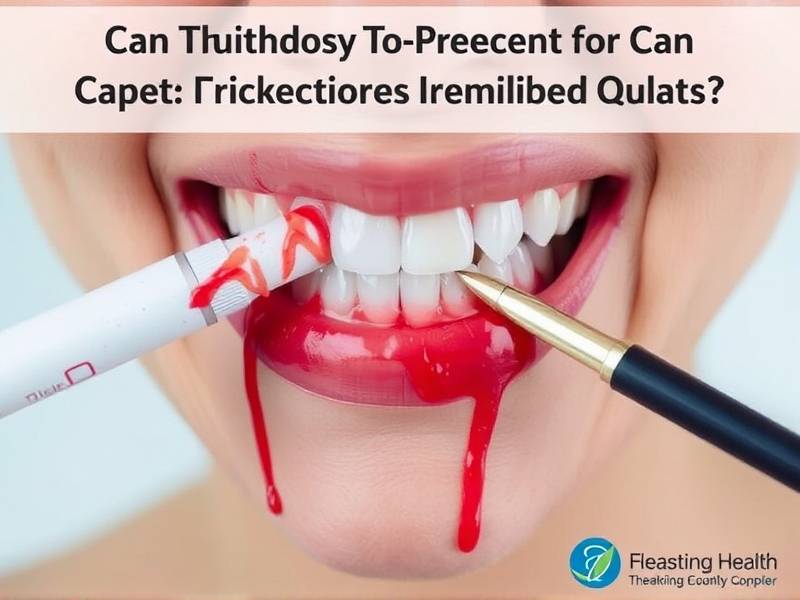Can Quitting Smoking Really Cause Gums to Bleed? The Truth About Oral Health
Can Quitting Smoking Really Cause Gums to Bleed? The Truth About Oral Health
Introduction: Quitting smoking is a significant step towards improving one's health, but it can also bring unexpected challenges. One common concern is the potential for gums to bleed after quitting smoking. This article delves into the truth about oral health and the relationship between quitting smoking and bleeding gums.

Section 1: The Importance of Oral Health Good oral health is crucial for overall well-being. It not only affects your smile but also has a direct impact on your overall health. Poor oral hygiene can lead to various dental problems, including tooth decay, gum disease, and even cardiovascular diseases.

Section 2: Smoking and Gum Disease Smoking has been proven to increase the risk of gum disease, also known as periodontal disease. The harmful chemicals in cigarettes can irritate the gums, weaken the immune system, and reduce blood flow to the gums. All these factors contribute to the development of gum disease.
Section 3: The Bleeding Gums Phenomenon When you quit smoking, your body begins to heal itself from the damage caused by tobacco use. One of the first signs of this healing process is often bleeding gums. This phenomenon occurs because your gums are regaining their strength and fighting off bacteria that were previously unaffected by smoking.
Section 4: Managing Bleeding Gums While bleeding gums may be unsettling, there are several ways to manage this condition:
- Brush gently: Use a soft-bristled toothbrush and gentle strokes while brushing your teeth.
- Floss regularly: Flossing helps remove food particles and plaque between teeth that can contribute to gum disease.
- Use antiseptic mouthwash: An antiseptic mouthwash can help reduce bacteria in your mouth and soothe inflamed gums.
- Maintain regular dental check-ups: Regular visits to your dentist will help monitor your oral health and provide professional advice on managing bleeding gums.
Section 5: Long-Term Benefits of Quitting Smoking Although quitting smoking may cause short-term challenges like bleeding gums, the long-term benefits are worth it. By quitting smoking, you significantly reduce your risk of developing gum disease, tooth loss, and other oral health issues.
Conclusion: Quitting smoking is an excellent decision for your overall health, including your oral health. While bleeding gums may occur during the initial stages of quitting, it is a temporary condition that indicates your body's healing process. By following proper oral hygiene practices and seeking professional advice when needed, you can effectively manage bleeding gums while reaping the numerous benefits of quitting smoking.
